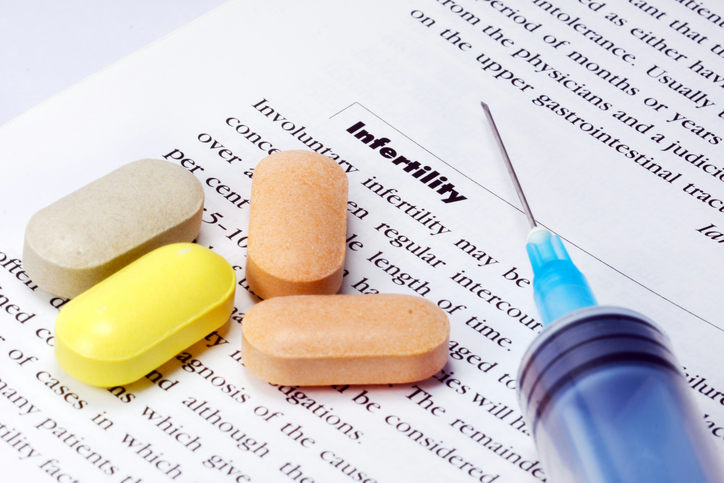The medications that you take can affect your fertility. Your fertility may actually drop if you’re taking certain medicines. When you are planning a family, it is essential to beware of the kind of medications and drugs that you take because they could have adverse effects on your fertility.
You may already know that things like Sexually Transmitted Infections, fibroids, excessive weight, and thyroid conditions can all impact conception. The same thing can happen with certain over-the-counter and prescription medications. They may also affect fertility.
Certain medications are necessary to treat certain conditions, and as a result, you may need to grapple with possible inability to conceive and the difficult feelings, including sadness, isolation, frustration, and anger, that can accompany it.
This is why close consultation with your doctor is quite necessary when it comes to the medications you take and your fertility. There may be alternatives that are just as effective.
Medication can interfere with your fertility in so many ways. Medicines can alter your ovulation, and endometrial or uterine receptivity to a pregnancy. Medication may actually affect your ability to ovulate by affecting the production of follicle stimulating hormone (FSH) or luteinizing hormone (LH) by the pituitary gland.
Once a medication is stopped, it takes some time for your body to recover, though the exact span varies from drug to drug. Some medications can interfere with normal egg production for months. If you are on certain medication you should wait three months before attempting conception. It may also take your body a month or two to get back to its optimal fertility after stopping some forms of birth control. This is most likely because the ovaries are recovering after a long time of suppression.
The total effects of certain medications on fertility is complicated and not totally understood. There are also many untested over-the-counter remedies that are perceived to improve fertility.
Generally, most over-the-counter medications don’t interfere with fertility, but it’s always a good idea to check with your doctor first, and be cautious.
Medication that can interfere with your ovulation, particularly the ability of the egg to be released by the ovary should be avoided. Some remedies contain substances that can act like hormones (estrogens or progestin), that may alter your hormone balance. If you are taking any drug, discuss its impact as it relates to your desire to become pregnant with your doctor.
If you are taking medication such as antidepressants and some antipsychotics, you should be careful because they can interfere with the hormonal regulation of your ovulation and may also elevate associated hormone levels such as prolactin.
Some of these medications could cause you to take longer to conceive and may also reduce the efficacy of infertility treatment and are associated with miscarriage and preterm birth.
Steroids in particular, may prevent the release of hormones needed for your ovulation and even menstruation. Avoid skin products with estrogen or progesterone, which may alter ovulation. As a woman, your menstrual cycle is controlled by the interaction between your brain, ovaries, and uterus. Any health problem or medication that disrupts this communication could adversely affect ovulation and make it challenging for you to achieve a pregnancy.
In some cases, like asthma, prescriptions are usually unavoidable, but note that some conditions may have equally effective alternatives that can work well during the conception stage.
Some prescription and over-the-counter medicines can certainly affect fertility, but it depends on what you’re taking.
If you take prescription drugs regularly, it’s important to tell your doctor that you want to try for a baby so there may be need to adjust your dose or switch you to a different drug.
It’s a good idea to double-check with your physician if you regularly use over-the-counter or off-the-shelf drugs, or any herbal remedies.
If you think your medication could be affecting your fertility, don’t suddenly stop taking it. Talk to your physician. It may be that the benefits of taking your medicine outweigh any possible fertility problems. If you’re on antidepressants, you may find that they make you less interested in sex, which isn’t helpful when you’ve decided to try for a baby. If you suspect this is happening, see your physician.
When you’re trying to conceive, avoid skin creams and gels that contain estrogen or progesterone. Although it’s not likely that you’d absorb enough of these hormones through the skin to affect ovulation, it’s best to play it safe.
If you’re using prescription anti-inflammatories for a condition such as arthritis or rheumatism, they may temporarily interfere with ovulation. Some drugs can affect your pituitary gland and stop or disrupt your periods. However, coming off them may make you very unwell, so talk to your doctor first about lowering your dose or switching to an alternative.
Take care with natural remedies, especially. There hasn’t been much research into alternative therapies and fertility, but certain herbs could potentially affect your ability to get pregnant. If you’re using any natural remedies, talk to a qualified practitioner or your doctor for more information.
Acupuncture, a complementary medicine used to treat pain, is fast becoming widely accepted as alternative therapy.
The message is clear. In your own interest, it is advisable to be on as few medications as possible when trying to conceive or while pregnant. What you should do is to sit down with your doctor before you get pregnant to discuss the safety of each medication, and to attempt to either switch to safer ones or try non-pharmaceutical approaches.
Some medicines can cause withdrawal symptoms if you stop taking them suddenly, so it’s always best to check with your physician first. Even if you do discover that you’re pregnant, don’t stop taking any prescribed medicine until you’ve spoken to your physician.





